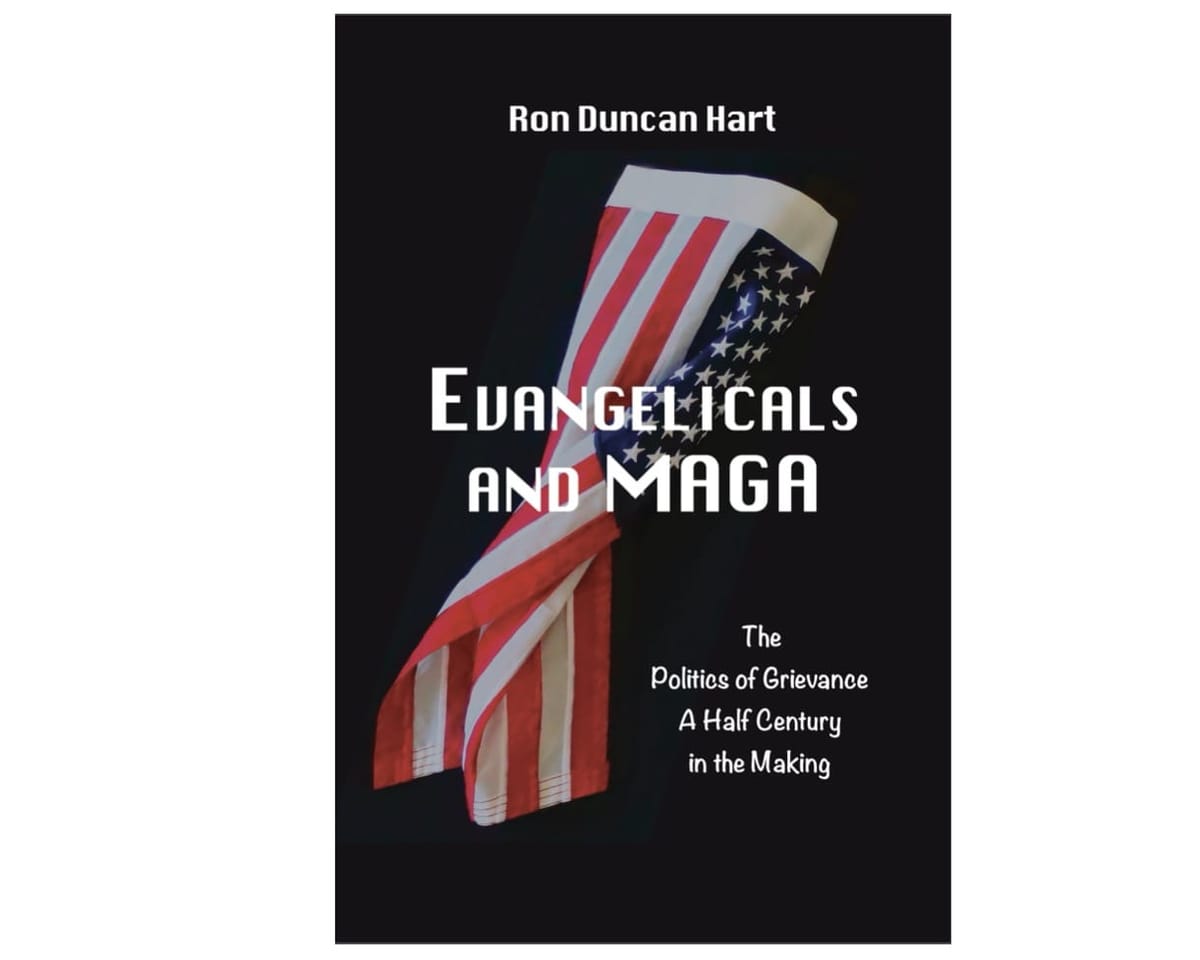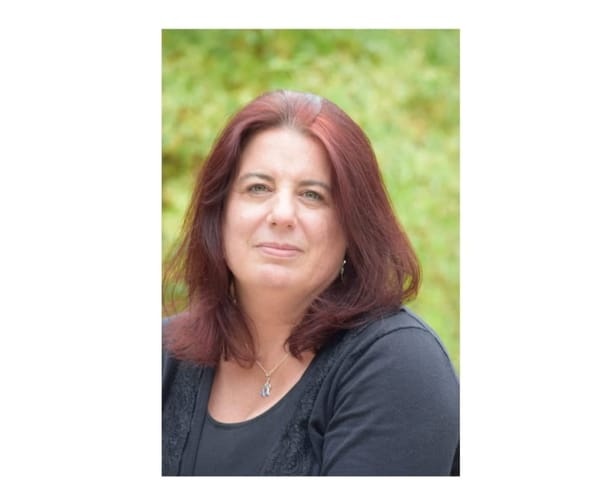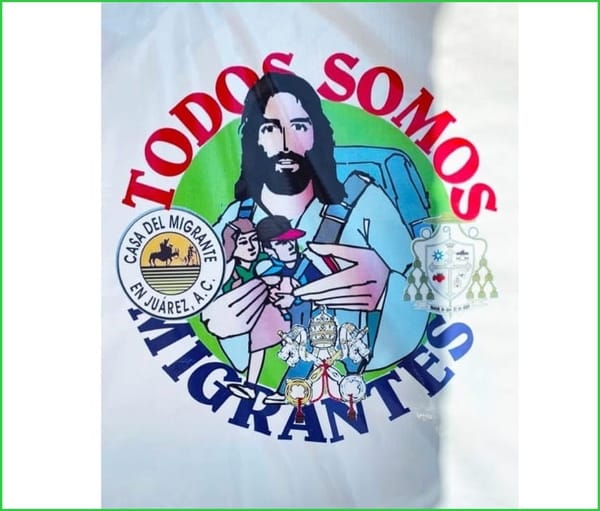Jews and Christian Nationalism

by Ron Duncan Hart
I first encountered Christian nationalism two generations ago in research I was doing in Cabbagetown, a White working-class neighborhood of Atlanta. It was at the end of the Jim Crow era in Southern politics, and people were protesting the outlawing of segregation and Bible reading and prayer in the schools. In rapid succession came the Civil Rights Acts, the ERA, and legalization of abortion. That was too much for the Christians in that neighborhood, almost all of whom were Evangelicals. Preachers in Cabbagetown validated the protests, telling the people that the United States was created as a Christian nation, and they had a God given right to reclaim it as a Christian nation. They were saying that Jews had outlawed the reading of the Bible and prayer, and that American communists (i.e Jews) were taking over America and would outlaw Christianity itself.
When I heard the Unite the Right chant that “Jews will not replace us” in the Charlotteville marches in 2017, I recognized the continuing trope that the Jews were replacing the Christians that I had heard in Cabbagetown forty-five years earlier. In Cabbagetown I had also heard preachers saying that the United States should be ruled by Christian leaders according to Protestant Evangelical values, which I understood as a call for theocracy. When they referred to Hitler and Stalin as leaders who had gotten things done, I understood that as advocating for antisemitic autocracy. Hidden in those messages was the call for a strong man who would overthrow the existing church/state order in the United States and bring fundamentalist Christian values to rule the country. At the time I thought that was extremist preaching to a local audience, but as I have come back to review this material over the years, I realize it was an acorn of an idea that would grow into an oak tree.
Christian theology is divided into a God/Devil binary with Christians on the side of God, and non-Christians, including Jews, the side of the Devil. Preachers in Cabbagetown repeatedly referred to Jews as foreigners, neither American nor Christian. Jews were said to be the people behind the Supreme Court rulings banning prayer and Bible reading in the schools. The euphemism of “communists” was regularly applied to Jews, a broader reference to anyone who was not Christian. They saw Jews as a threat to Christians.
Preachers in Cabbagetown were advocating the imposition of Christian principles in the country to stop religious and racial pluralism. I have asked myself whether this was reflecting the virtual fascism of the American South during the Jim Crow era when law enforcement, preachers, and politicians would join together under the hoods of the Ku Klux Klan to enforce Christian values and racism, attacking and even lynching Blacks and Jews.
In the 1970s Rev. Jerry Falwell of the Moral Majority emerged as a national spokesperson for this Evangelical political movement. He and his seven million followers helped elect Ronald Reagan as President in 1980, making the movement a political force. In 1987 Pat Robertson formed the Christian Coalition with a following over three million people and led Evangelicals to become a powerful political presence. Robertson ran for President as a Republican in 1988, and when he came in second in the Iowa caucuses, it was resounding announcement that Evangelicals had become a major voice within the Party.
Robertson favored Christian values in government. Using his cable television platform, he became a prominent national figure opposing abortion in the name of “family values”. He helped start the political emphasis from the right on culture wars. After seeing the emergence of Christian nationalism as a political force under the leadership of Jerry Falwell, Pat Robertson, and others, I understood the potential impact of these ideas on Jews and the national political environment. Then, the events such as the Charleston Church murders in 2015, the Unite the Right riots in Charlottesville in 2017, the Tree of Life synagogue terrorist attack in 2018, the anti-immigrant El Paso mass shooting in 2019, and the attack on the United Stated capitol on January 6, 2021, gave evidence that these words were not just hidden rhetoric, they were the germs of violent action.
Evangelical preachers were giving voice to the perceived victimhood of fundamentalist Christians and urging them to act against what they called the attack on religious and family values. They were taking Christian nationalism mainstream. As I listened to people in Cabbagetown, I heard their belief in White Christian superiority and Christian nationalism. Although they were a poor, working-class community, they could accept poverty as a part of God’s plan for their lives, but they could not accept the federal government forcing them to live with Black people and prohibiting prayer and Bible reading in the schools. They had lost what they perceived as their God ordained world and lifestyle, and they were protesting.
The fusion of the belief in Christian superiority and Christian nationalism with America First groups would produce a political movement convinced that it had God ordained rights to their way of life. In this unitary belief system, there was only one true way to follow God, and the pluralism of democracy was a threat. Christian authoritarianism would be the only way to guarantee the dominance of Christian values in society even if it required the old alliance between authoritarianism and the church.
As the Evangelical preachers in Cabbagetown had predicted, the identification as Christians dropped from 90 percent to 70 percent in the United States in the fifty years between 1970 and 2020. During that period the mainline Protestant denominations (Episcopal, Presbyterian, Lutheran, United Methodist) dropped to approximately half their former membership, and the evangelical Protestant denominations (Southern Baptists, Assemblies of God, and Church of the Nazarene) grew between 15 and 20 percent. Southern Baptists now outnumber Methodists by two to one and have become an even more dominant force in American religious life. America was shifting to the right religiously and politically.
The growth and influence of conservative religious groups in recent decades has emboldened some on the religious right to “take back America”, joining movements that they think will restore an America that is “Christian” according to their definition. The growth in the power of the religious right has led to interweaving religion and intolerance and contributed to the “zealotry” of hate groups.
White Christians feared that their very existence was threatened, and a Baptist minister said in a sermon in Cabbagetown,
Hitler and Stalin did something. The communists killed 50 million Chinese Christians when they took over. They were tortured and killed. What will we do when we are tortured by communists [i.e. Jews] to reject Christ?
Sunday after Sunday, Evangelical preachers said that their Christian way of life and their very lives were being threatened, and they would be replaced by Jews, Blacks, communists, and others. Religious leaders preached the fear that the Christian character of the country was disappearing, and they blamed the federal Government. The line dividing religion and politics disappeared when it came to discussing the rights to public prayer, Bible reading, and segregation. To many in America those were public policy issues, but to people in Cabbagetown, they were religious issues. People told me that the federal government was undermining the United States as the greatest country on earth, and that it would lead to its doom.
As the number of Christians has declined in America, Evangelicals have coalesced into the religious right, supporting Christian nationalist political causes and candidates. In 2021 the Pew Research Council issued a report on the continuing support of Evangelicals for Donald Trump, who has openly embraced Christian nationalism. In the 2016 presidential election he received 77 percent of the White Evangelical vote to Hillary Clinton’s 16 percent. Analyzing the support for Trump from Evangelicals voting in both 2016 and 2020, Pew found that the percentage of voting people who identified as Evangelical increased from 25 percent in 2016 to 29 percent in 2020. In a 2022 poll some 45 percent of Americans said that the United States should be a Christian nation. Christian nationalism had become a dominant single purpose voting bloc in American politics.
Writing for New York Magazine, Ed Kilgore argues that Christian nationalists see Donald Trump as an irreplaceable figure who would implement God’s plan for a Christian America. To them he has proven his commitment to their cause by supporting their goals, especially appointing Supreme Court members to overturn Roe vs. Wade.
As the mill villagers were forced out of the Jim Crow era, their preachers led them in blaming the federal government for corrupting their Christian way of life. Their belief in the superiority of their religious path included a God-given responsibility to establish Christian rule to achieve their purpose of bringing what they understand as biblical principles into government. The premise within Christian nationalism that Jews will replace Christians and outlaw the practice of Christianity is false, but it is the kind of false information that antisemitic forces have historically used against Jews. This leaves us with the question, “What will Christian nationalism mean for Jews in America in 2024 and afterwards?”
Duncan Hart discusses these issues in his recently published book, Evangelicals and MAGA: The Politics of Grievance a Half Century in the Making, available on Amazon. For more information, go to www.evangelicalsandmaga.org.
Ron's opinion piece “Christian Nationalism: Religion or Politics?” was just published on June 16th in Baptist News Global, the independent Baptist news organization with over 4 million readers.

Be sure to visit Ron's organization The Institute for Tolerance Studies and their Santa Fe Distinguished Lecture Series and so much more.
To see more articles click here, the HOME button at the top of the page.
Community Supporters of the NM Jewish Journal include these advertisers:
Jewish Community Foundation of New Mexico
Congregation Albert
Jewish Community Center of Greater Albuquerque
The Institute for Tolerance Studies
Shabbat with Friends: Recapturing Together the Joy of Shabbat
Congregation B'nai Israel
Jewish Federation of El Paso and Las Cruces
Temple Beth Shalom
Single Event Announcement advertisers:
Academy of Jewish Learning at Congregation B'nai Israel
New Mexico Jewish Historical Society
Policy Statement Acceptance of advertisements does not constitute an endorsement of the advertisers’ products, services or opinions. Likewise, while an advertiser or community supporter's ad may indicate their support for the publication's mission, that does not constitute their endorsement of the publication's content.
Copyright © 2024-2025 New Mexico Jewish Journal LLC. All rights reserved.




